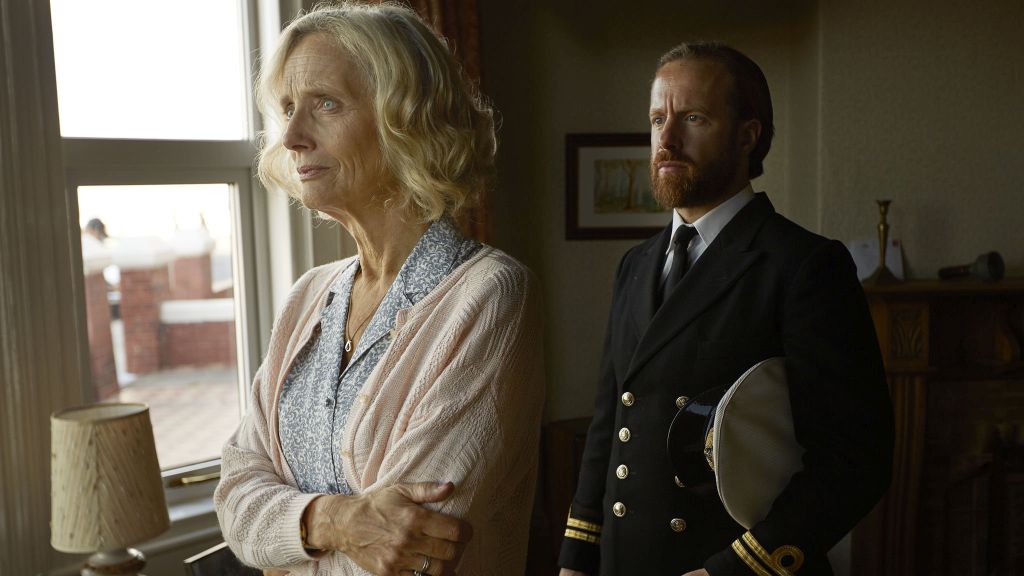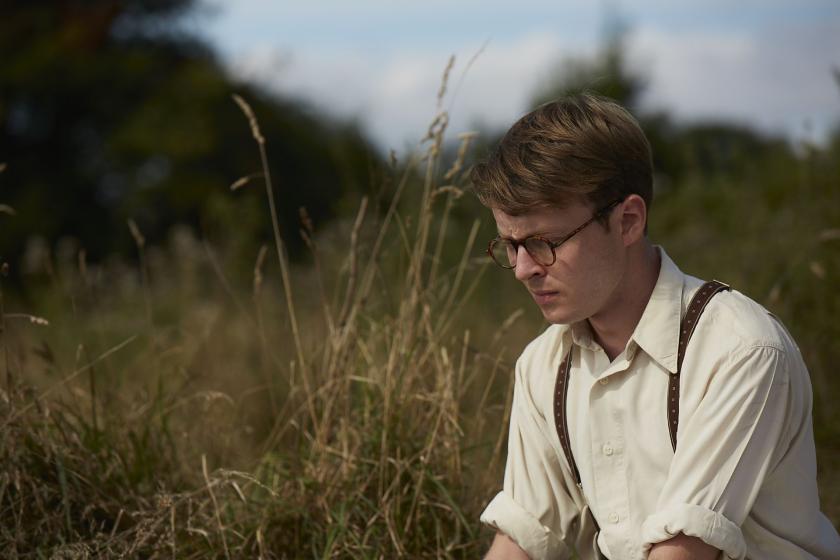Robert Holman’s 1986 Bush Theatre play – seen most recently in London at the Donmar Warehouse in 2012 – makes for a beautifully acted curio of a film that, intriguingly, boasts three screenwriters in Nick Drake, Mark Rosenblatt, and Holman himself. And as on stage, this triptych of stories begins well and peters out as it goes along, though a luxury cast more than sustains interest throughout.
Under the attentive direction of Dominic Dromgoole, the theatre veteran of both the Bush and Shakespeare's Globe, the tripartite structure remains intact: three stories set in different times and places relating three very different encounters between people against various backdrops of war. Separated by a plaintive Stephen Warbeck score played by a pianist who would seem to have taken up residency in an abandoned barn, as you do, the stories chronicle the shifting tensions between adults brought together by chance: a child gets added to the mix in the final playlet, which more than ever here registers as a high-minded variant on that old Broadway warhorse, The Miracle Worker.
 Set in a Kentish field in 1944, the first duologue returns the wonderful Matthew Tennyson to the role of the poshly spoken embryonic novelist that he played onstage in 2012. Upfront about being gay, his character, Eric, falls into conversation with a Mancunian conscientious objector called Oliver (Luke Thompson, a terrific actor who should be better known than he is), who can't articulate his sexuality with the same ease. Nick Cooke's camerawork enfolds both men into the unruffled landscape of which they speak and ends on a gently suggestive note that leaves one wanting more. The actors emit an immediate and palpable rapport, and Thompson more than ever resembles a younger Clive Owen in a potentially precious narrative whose economy of gesture and feeling widens in impact the more one thinks about it.
Set in a Kentish field in 1944, the first duologue returns the wonderful Matthew Tennyson to the role of the poshly spoken embryonic novelist that he played onstage in 2012. Upfront about being gay, his character, Eric, falls into conversation with a Mancunian conscientious objector called Oliver (Luke Thompson, a terrific actor who should be better known than he is), who can't articulate his sexuality with the same ease. Nick Cooke's camerawork enfolds both men into the unruffled landscape of which they speak and ends on a gently suggestive note that leaves one wanting more. The actors emit an immediate and palpable rapport, and Thompson more than ever resembles a younger Clive Owen in a potentially precious narrative whose economy of gesture and feeling widens in impact the more one thinks about it.
The second commingling of apparent opposites, entitled Lost, is set in Redcar, Cleveland, in 1982 and takes a more baldfaced, less vaporous path. Geoffrey Streatfeild plays a naval lieutenant who has been dispatched to inform a working-class mum called May (Barbara Marten, eyes-ablaze) of the death while in the Falklands of a son, Ian, about whom his neglected mother clearly has conflicted emotions. May concludes their surprise-laden exchange by expressing "pride" in Ian, even as the writing inhabits that fine and furious line between love and hate. The (acknowledged) visual echoes of Terence Davies are both apparent and fully earned, and Marten, in particular, gives off a potent screen presence one wouldn't have necessarily anticipated from her work onstage. (Marten has a supporting role in the current National Theatre revival of Rutherford and Son.)
The final story has the title of the film (and play) as a whole and continues to ring false to me, notwithstanding the luxury pairing on hand of Deborah Findlay and Trystan Gravelle. Set in the Black Forest in 1996, the scenario casts a pinched-seeming Findlay as a German-Jewish woman, Helene, who loves to paint but whose placidity cracks under pressure, as we soon find out. Her grievous past allows for a combustible present when confronted not just by the feral Gravelle but by his own, clearly-disturbed young stepson (Orton O'Brien), with whom Helene wages a kind of war. Parceling out various revelations as if by rote, the plotting feels not a little contrived and benefits no end from actors who benefit from an unerring eye for the truth: the players in this one make the noise, less so the play.



Add comment